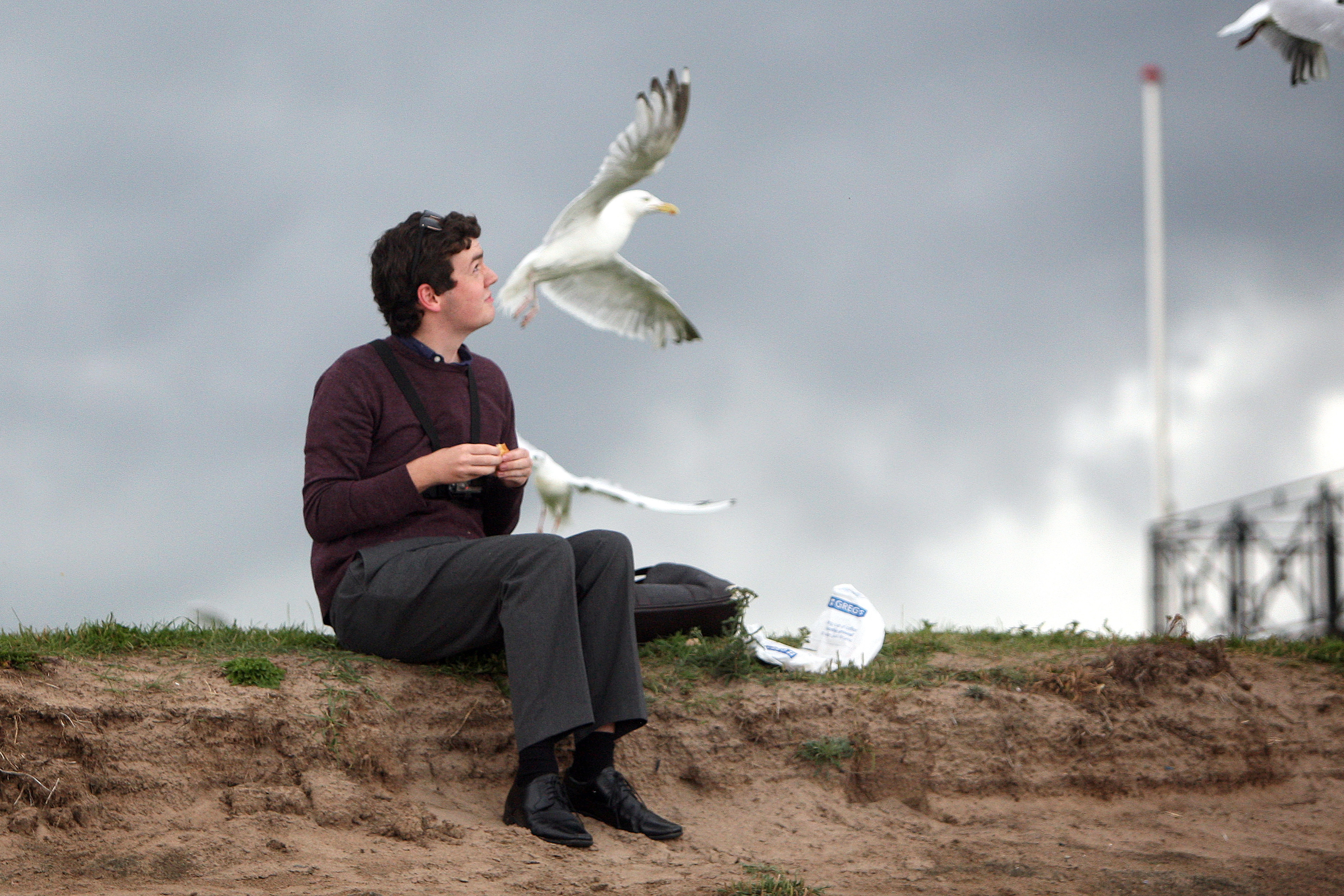Courier Country is home to some glorious picnic sites – with idyllic seaside towns, parks and beaches.
However, reports of seagulls terrorising anyone who dares step foot in their territory with anything edible have become more common and it seems everyone has their own story of these munching menaces. We all know someone who has been harassed over their steak bake or chased for a chip by a bold gull, not to mention the occasional surprise gift from the sky which can ruin your day in seconds.
On a recent lunchtime visit to Broughty Ferry’s glorious beach, overlooked by the castle, I sat down to enjoy one of the gulls’ favourite foods – a hot, greasy sausage roll.
Within seconds the peaceful summer sky was full of would-be thieves, circling to get a glimpse of my snack. I had unintentionally become a Hitchcockian Tippi Hedren, victimised by aerial assault.
It seemed there were two waves of attack. The smaller black headed gulls were the infantry, hopping along the ground, testing my lines of defence and racing for the odd crumb that went their way.
The herring gulls, meanwhile, were the cavalry. They kept their distance, waiting for the opportune moment before swooping in and taking the prize, forcing their smaller counterparts out of the way.
In a brave moment, one even swooped in to grab another sausage roll from the sitting Gregg’s bag and gulped it down whole.
It’s easy to see how small children could find these birds intimidating. Individually, they are of a surprisingly big size, and when an entire flock descends, it can be daunting.
So how is it they can so quickly determine that what I have is so tasty, and therefore worthy of their attention?
Like most birds, gulls aren’t gifted with a great sense of smell. The region of their brains devoted to perceiving smells – the olfactory lobe, if we want to be truly scientific – is proportionally larger than that of songbirds, but much smaller than that of birds like vultures which are known to find food by its scent.
Instead, they rely on exceptional eyes which have evolved to be able to see fish under the water from great heights.
They’re also more intelligent than we give them credit for; they are sneaky, and quick to learn.
Anecdotal evidence suggests they adapt their lifestyle to suit their needs, by ensuring they’re awake and ready during takeaways’ business hours where they can get a free snack, and patrolling picnic spots during lunch hours when they have the best bet of stealing some food.
All of this makes them perfectly designed to catch out as many outdoor eaters as possible, and explains why many have learned that urban living can be more productive than a hard life at sea.












